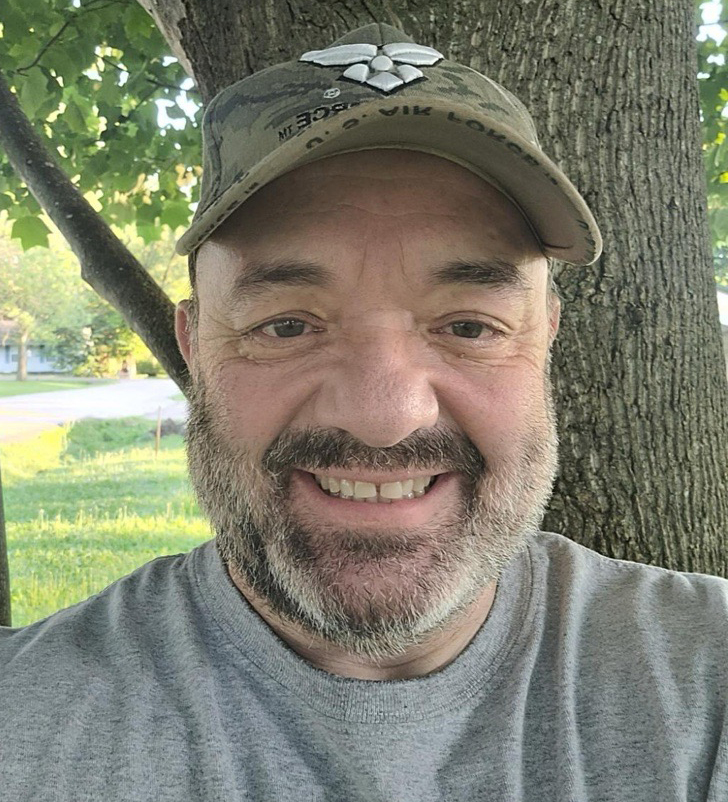Robotic-Assisted Hernia Surgery Got Grandpa Back on His Feet
David Ehren’s days often include watching his three grandsons. It’s a joy for the 63-year-old grandfather. It’s also a physically demanding duty, due to the rambunctiousness three brothers can c ook up.
ook up.
When a troublesome inguinal hernia started causing problems, keeping pace with the boys became a bigger challenge for David.
An inguinal hernia, the most common kind of hernia, is a condition where abdominal tissue, such as part of the intestine, bulges through a weak spot in the abdominal muscles. The opening in the abdominal tissue can be present at birth or develop over time. Inguinal hernias most commonly affect males and are often called groin hernias. They tend to worsen over time and, if not treated, can cause multiple complications.
“It was uncomfortable,” David says. “If I stood for a long period of time, I would need to sit down and kind of push the hernia back into place.”
David knew he needed a solution, so he sought out recommendations from his friends and family who worked at Missouri Baptist Sullivan Hospital. Their feedback was fast and unanimous, pointing to Jaroslaw Michalik, MD, a surgeon at Missouri Baptist Sullivan.
"Inguinal or groin hernias are a very common affliction causing discomfort and pain,” Dr. Michalik says. “If not repaired, they inevitably become larger and can cause intestinal complications of entrapment and strangulation.”
As the opening in the abdominal muscle becomes weaker and larger, more tissue can push through it, increasing the risk of the tissue being trapped and causing pain and other complications. If pinched or blocked, the tissue can be cut off from blood supply. The larger a hernia grows, the more likely it is to cause painful swelling, infection, interference with bodily functions, and even tissue death.
After he examined David’s hernia, Dr. Michalik asked David if he would be comfortable with the idea of robotic-assisted surgery. As an IT professional with an interest in technology, David was intrigued, in part because the company he works for has had success using robots throughout its warehouses.
“Robots seem to be where a lot of things are headed,” David says. “I knew the doctor would still be in control.”
The robotic technology, which was recently introduced at Missouri Baptist Sullivan, is hard at work helping doctors treat patients. David became Dr. Michalik’s fourth robotic inguinal hernia repair at the hospital. Dr. Michalik has completed more than 45 robotic cases since the hospital debuted robotic-assisted surgery technology in April 2025.
"Robotic inguinal hernia repair improves significantly upon the traditional laparoscopic approach," Dr. Michalik says.
Because the groin is an anatomically crowded area including multiple vascular and nerve structures, Dr. Michalik explains, precision is critical. Through robotic-assisted surgery, a surgeon benefits from a detailed, 3D visualization of the area, increasing precision while decreasing tissue trauma caused to the patient. That translates to decreased pain, faster recovery, and a decreased chance of a hernia recurrence.
"It is an outpatient surgery (the patient goes home the same day) with quick return to normal activities with a period of weight-lifting limitations," Dr. Michalik says.
Getting back on his feet fast was a big plus for David. It meant he was back to work quickly and returned to roughhousing with his grandsons sooner than he initially thought could be possible.
“Faster recovery was all I needed to hear,” David says. “This kind of surgery was the way to go.”
Robotic-assisted surgery at Missouri Baptist Sullivan Hospital provides patients decreased pain and faster recoveries. To find out if you are a candidate, call 573-468-1999 or request an appointment.